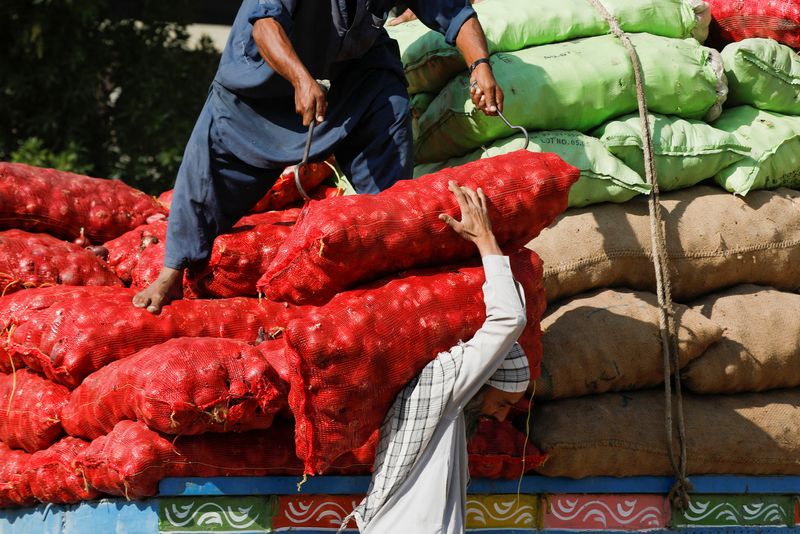By Swati Bhat and Gibran Naiyyar Peshimam
MUMBAI/ISLAMABAD (Reuters) - Inflation in Pakistan could average 33% in the first half of 2023 before trending lower, and a bailout from the International Monetary Fund alone is unlikely to put the economy back on track, a senior economist with Moody's (NYSE:MCO) Analytics told Reuters.
"Our view is that an IMF bailout alone isn't going to be enough to get the economy back on track. What the economy really needs is persistent and sound economic management," senior economist Katrina Ell said in an interview on Wednesday.
"There's still an inevitably tough journey ahead. We're expecting fiscal and monetary austerity to continue well into 2024," she added.
Pakistan government and the IMF could not reach a deal last week and a visiting IMF delegation departed Islamabad after 10 days of talks, but said negotiations would continue. Pakistan is in dire need of funds as it battles a wrenching economic crisis.
An agreement on the ninth review of the programme would release over $1.1 billion of the total $2.5 billion pending as part of the current package agreed in 2019 which ends on June 30. The funds are crucial for the economy whose current foreign exchange reserves barely cover 18 days worth of imports.
"Even though the economy is in a deep recession, inflation is incredibly high as (result of) part of the latest bailout conditions," Ell said.
"So what we're expecting is that through the first half of this year, inflation is going to average about 33% and then might trend a little bit lower after that," she added.
The consumer price index rose 27.5% year-on-year in January, its highest in nearly half a century.
Low income households could remain under extreme pressure as a result of high inflation on account of being disproportionately exposed to non-discretionary items.
"Food prices are high and they can't avoid paying for that, so we're going to see higher poverty rates as well feed through," the economist said.
NO OVERNIGHT FIX
Ell said Pakistan has not has a great track record when it comes to IMF bailouts, so infusing additional funds alone may prove to be of little use.
"If we're going to see any improvement, it's going to be very gradual. There's just no overnight fix," she said.
The weaker rupee, which is plumbing record lows, is adding to imported inflation while domestically high energy costs on the back of tariff increases and still elevated food prices is likely to keep inflation high.
Moody's expects economic growth for the 2023 calendar year of around 2.1%.
"It is likely that we will see further monetary tightening in Pakistan to try and stabilise inflation and also with the weakness in the FX they might kind of intervene there to try and force in stability, but again it's not going to be a silver bullet," Ell said.
Last month, the central bank raised its key interest rate by 100 basis points (bps) to 17% in a bid to rein in persistent price pressures. It has raised the key rate by a total of 725 bps since January 2022.

With significant recession-type conditions in Pakistan, skyrocketing borrowing costs could really exacerbate domestic demand struggles, she said.
"You really need to see sustained sound macroeconomic management, and just injecting further funds in there without decent backing is not going to deliver the results that you're looking for."